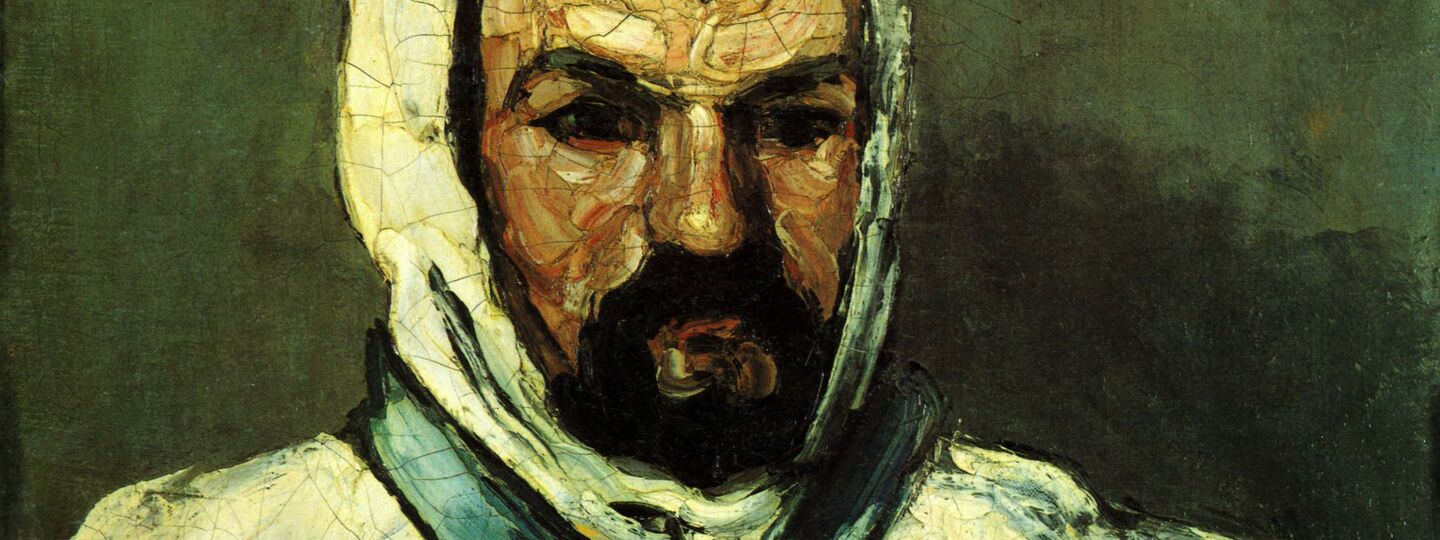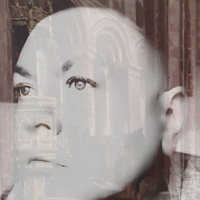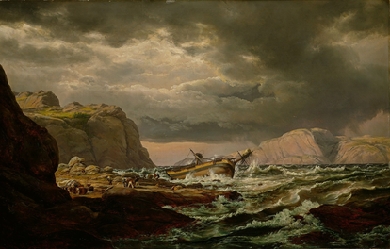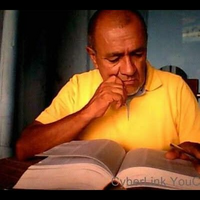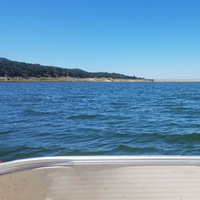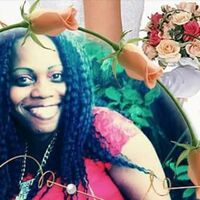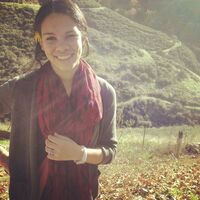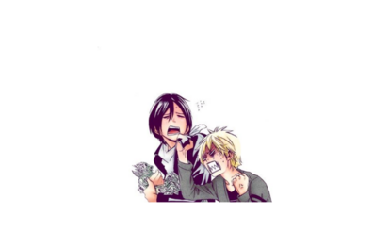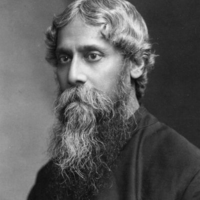
Rabindranath Tagoreα (7 May 1861 – 7 August 1941) was an Indian Bengali polymath who reshaped his region’s literature and music. Author of Gitanjali and its “profoundly sensitive, fresh and beautiful verse”, he became the first non-European to win the Nobel Prize in Literature in 1913. In translation his poetry was viewed as spiritual and mercurial; his seemingly mesmeric personality, flowing hair, and other-worldly dress earned him a prophet-like reputation in the West. His “elegant prose and magical poetry” remain largely unknown outside Bengal.


A veces es difícil morir, más cuando aún estás vivo. Rendirse no es opción y seguir adelante es mandatorio. Aveces necesitamos rupturas y olvidar que hubo historia... A veces es difícil vivir, más cuando el tiempo quiere verte morir, Pero todos necesitamos destrucción, para alcanzar un renacer en gloria. La vida no tiene manual o instrucciones sigue, sin arrepentirte y aprende día con día sus lecciones!
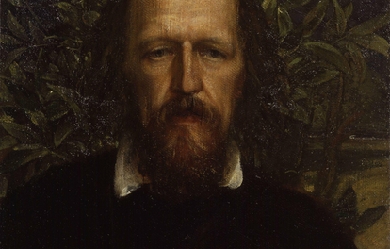
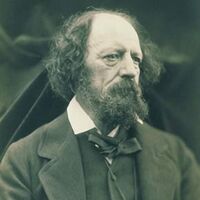
Alfred Tennyson, 1st Baron Tennyson, FRS (6 August 1809 – 6 October 1892) was Poet Laureate of the United Kingdom during much of Queen Victoria's reign and remains one of the most popular poets in the English language. A number of phrases from Tennyson’s work have become commonplaces of the English language, including “Nature, red in tooth and claw”, “'Tis better to have loved and lost / Than never to have loved at all”, “Theirs not to reason why, / Theirs but to do and die”, “My strength is as the strength of ten, / Because my heart is pure”, “Knowledge comes, but Wisdom lingers”, and “The old order changeth, yielding place to new”. He is the ninth most frequently quoted writer in The Oxford Dictionary of Quotations.
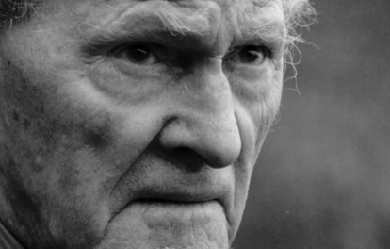
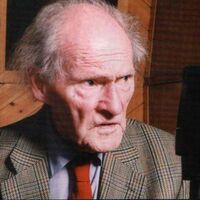
Ronald Stuart Thomas (29 March 1913 – 25 September 2000), published as R. S. Thomas, was a Welsh poet and Anglican priest who was noted for his nationalism, spirituality and deep dislike of the anglicisation of Wales. In 1955, John Betjeman, in his introduction to the first collection of Thomas’s poetry to be produced by a major publisher, Song at the Year's Turning, predicted that Thomas would be remembered long after Betjeman himself was forgotten. M. Wynn Thomas said: "He was the Aleksandr Solzhenitsyn of Wales because he was such a troubler of the Welsh conscience. He was one of the major English language and European poets of the 20th century." R. S. Thomas was born in Cardiff, the only child of Thomas Hubert and Margaret (née Davis). The family moved to Holyhead in 1918 because of his father's work in the merchant navy. He was awarded a bursary in 1932 to study at Bangor University, where he read Classics. In 1936, having completed his theological training at St. Michael's College, Llandaff, he was ordained as a priest in the Church in Wales. From 1936 to 1940 he was the curate of Chirk, Denbighshire, where he met his future wife, Mildred (Elsi) Eldridge, an English artist. He subsequently became curate at Tallarn Green, Flintshire. Thomas and Mildred were married in 1940 and remained together until her death in 1991. Their son, Gwydion, was born 29 August 1945. The Thomas family lived on a tiny income and lacked the comforts of modern life, largely by the Thomas's choice. One of the few household amenities the family ever owned, a vacuum cleaner, was rejected because Thomas decided it was too noisy. For twelve years, from 1942 to 1954, Thomas was rector at Manafon, near Welshpool in rural Montgomeryshire. It was during his time at Manafon that he first began to study Welsh and that he published his first three volumes of poetry, The Stones of the Field, An Acre of Land and The Minister. Thomas' poetry achieved a breakthrough with the publication of his fourth book Song at the Year's Turning, in effect a collected edition of his first three volumes, which was critically very well received and opened with Betjeman's famous introduction. His position was also helped by winning the Royal Society of Literature's Heinemann Award. Thomas learnt the Welsh language at age 30, too late in life, he said, to be able to write poetry in it. The 1960s saw him working in a predominantly Welsh speaking community and he later wrote two prose works in Welsh, Neb (English: Nobody), an ironic and revealing autobiography written in the third person, and Blwyddyn yn Llŷn (English: A Year in Llŷn). In 1964 he won the Queen's Gold Medal for Poetry. From 1967 to 1978 he was vicar at St Hywyn's Church (built 1137) in Aberdaron at the western tip of the Llŷn Peninsula. Thomas retired from church ministry in 1978 and he and his wife relocated to Y Rhiw, in "a tiny, unheated cottage in one of the most beautiful parts of Wales, where, however, the temperature sometimes dipped below freezing", according to Theodore Dalrymple. Free from the constraints of the church he was able to become more political and active in the campaigns that were important to him. He became a fierce advocate of Welsh nationalism, although he never supported Plaid Cymru because he believed they did not go far enough in their opposition to England. In 1996 Thomas was nominated for the Nobel Prize for Literature (the winner that year was Seamus Heaney). Thomas died on 25 September 2000, aged 87, at his home at Pentrefelin near Criccieth. He had been ill with heart trouble and had been treated at Gwynnedd hospital until two weeks before he died. After his death an event celebrating his life and poetry was held in Westminster Abbey with readings from Heaney, Andrew Motion, Gillian Clarke and John Burnside. Thomas's ashes are buried close to the door of St. John's Church, Porthmadog, Gwynedd. Beliefs Thomas believed in what he called "the true Wales of my imagination", a Welsh-speaking, aboriginal community that was in tune with the natural world. He viewed western (specifically English) materialism and greed, represented in the poetry by his mythical "Machine", as the destroyers of community. He could tolerate neither the English who bought up Wales and, in his view, stripped it of its wild and essential nature, nor the Welsh whom he saw as all too eager to kowtow to English money and influence. This may help explain why Thomas was an ardent supporter of CND and described himself as a pacifist but also why he supported the Meibion Glyndŵr fire-bombings of English-owned holiday cottages in rural Wales. On this subject he said in 1998, "what is one death against the death of the whole Welsh nation?" He was also active in wildlife preservation and worked with the RSPB and Welsh volunteer organisations for the preservation of the Red Kite. He resigned his RSPB membership over their plans to introduce non-native kites to Wales. Thomas's son, Gwydion, a resident of Thailand, recalls his father's sermons, in which he would "drone on" to absurd lengths about the evil of refrigerators, washing machines, televisions and other modern devices. Thomas preached that they were all part of the temptation of scrambling after gadgets rather than attending to more spiritual needs. "It was the Machine, you see", Gwydion Thomas explained to a biographer. "This to a congregation that didn’t have any of these things and were longing for them." Although he may have taken some ideas to extreme lengths, Theodore Dalrymple wrote, Thomas "was raising a deep and unanswered question: What is life for? Is it simply to consume more and more, and divert ourselves with ever more elaborate entertainments and gadgetry? What will this do to our souls?" Although he was a cleric, he was not always charitable and was known for being awkward and taciturn. Some critics have interpreted photographs of him as indicating he was "formidable, bad-tempered, and apparently humorless." Works Almost all of Thomas's work concerns the Welsh landscape and the Welsh people, themes with both political and spiritual subtext. His views on the position of the Welsh people, as a conquered people are never far below the surface. As a cleric, his religious views are also present in his works. His earlier works focus on the personal stories of his parishioners, the farm labourers and working men and their wives, challenging the cosy view of the traditional pastoral poem with harsh and vivid descriptions of rural lives. The beauty of the landscape, although ever-present, is never suggested as a compensation for the low pay or monotonous conditions of farm work. This direct view of "country life" comes as a challenge to many English writers writing on similar subjects and challenging the more pastoral works of such as contemporary poets as Dylan Thomas. Thomas's later works were of a more metaphysical nature, more experimental in their style and focusing more overtly on his spirituality. Laboratories of the Spirit (1975) gives, in its title, a hint at this development and also reveals Thomas's increasing experiments with scientific metaphor. He described this shift as an investigation into the "adult geometry of the mind".} Fearing that poetry was becoming a dying art, inaccessible to those who most needed it, "he attempted to make spiritually minded poems relevant within, and relevant to, a science-minded, post-industrial world", to represent that world both in form and in content even as he rejected its machinations. Despite his nationalism Thomas could be hard on his fellow countrymen. Often his works read as more of a criticism of Welshness than a celebration. He himself said there is a "lack of love for human beings" in his poetry. Other critics have not been so harsh. Al Alvarez said: "He was wonderful, very pure, very bitter but the bitterness was beautifully and very sparely rendered. He was completely authoritative, a very, very fine poet, completely off on his own, out of the loop but a real individual. It's not about being a major or minor poet. It's about getting a work absolutely right by your own standards and he did that wonderfully well." Thomas's final works commonly sold 20,000 copies in Britain alone. Books * The Stones of the Field (1946) * An Acre of Land (1952) * The Minister (1953) * Song at the Year's Turning (1955) * Poetry for Supper (1958) * Tares, [Corn-weed] (1961) * The Bread of Truth (1963) * Words and the Poet (1964, lecture) * Pietà (1966) * Not That He Brought Flowers (1968) * H'm (1972) * What is a Welshman? (1974) * Laboratories of the Spirit (1975) * Abercuawg (1976, lecture) * The Way of It (1977) * Frequencies (1978) * Between Here and Now (1981) * Ingrowing Thoughts (1985) * Neb (1985) in Welsh, autobiography, written in the third person * Experimenting with an Amen (1986) * Welsh Airs (1987) * The Echoes Return Slow (1988) * Counterpoint (1990) * Blwyddyn yn Llŷn (1990) in Welsh * Pe Medrwn Yr Iaith : ac ysgrifau eraill ed. Tony Brown & Bedwyr L. Jones, essays in Welsh (1990) * Mass for Hard Times (1992) * No Truce with the Furies (1995) * Autobiographies (1997, collection of prose writings) * Residues (2002, posthumously) References Wikipedia - http://en.wikipedia.org/wiki/R._S._Thomas

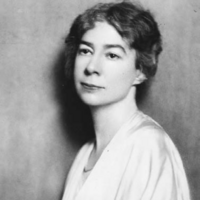
Sara Teasdale (August 8, 1884 – January 29, 1933) was an American lyric poet. She was born Sarah Trevor Teasdale in St. Louis, Missouri, and used the name Sara Teasdale Filsinger after her marriage in 1914. She had such poor health for so much of her childhood, home schooled until age 9, that it was only at age 10 that she was well enough to begin school. She started at Mary Institute in 1898, but switched to Hosmer Hall in 1899, graduating in 1903. I Shall Not Care WHEN I am dead and over me bright April Shakes out her rain-drenched hair, Tho' you should lean above me broken-hearted, I shall not care. I shall have peace, as leafy trees are peaceful When rain bends down the bough, And I shall be more silent and cold-hearted Than you are now.

Dear my followers...I'm going to be taking this page down shortly. I'm sorry but I can't keep up with it and to help ease some of the stress I have I can't keep it up. Thank you for everything though. Feel free to email me and keep writing, remember you all are beautiful and talented. Don't let this world get you down. Farewell my friends, For the last, XoxoTay.
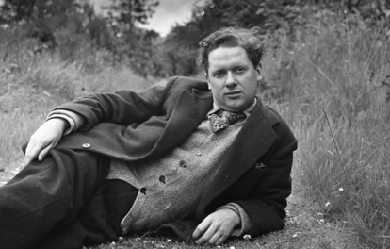

Dylan Marlais Thomas (27 October 1914 – 9 November 1953) was a Welsh poet and writer who wrote exclusively in English. In addition to poetry, he wrote short stories and scripts for film and radio, which he often performed himself. His public readings, particularly in America, won him great acclaim; his sonorous voice with a subtle Welsh lilt became almost as famous as his works. His best-known works include the “play for voices” Under Milk Wood and the celebrated villanelle for his dying father, “Do not go gentle into that good night”. Appreciative critics have also noted the craftsmanship and compression of poems such as “In my Craft or Sullen Art”, and the rhapsodic lyricism in “And death shall have no dominion” and “Fern Hill”.
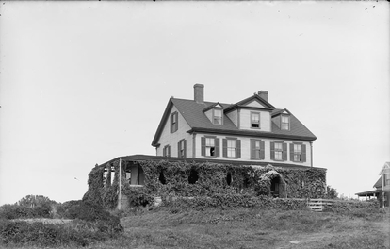
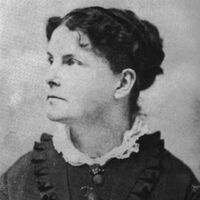
Celia Laighton Thaxter (June 29, 1835 – August 25, 1894) was an American writer of poetry and stories. She was born in Portsmouth, New Hampshire. Thaxter grew up in the Isles of Shoals, first on White Island, where her father, Thomas Laighton, was a lighthouse keeper, and then on Smuttynose and Appledore Islands. When she was sixteen, she married Levi Thaxter and moved to the mainland, residing first in Watertown, Massachusetts at a property his father owned. Celia died suddenly while on Appledore Island. She was buried not far from her cottage, which unfortunately burned in the 1914 fire that destroyed The Appledore House hotel.
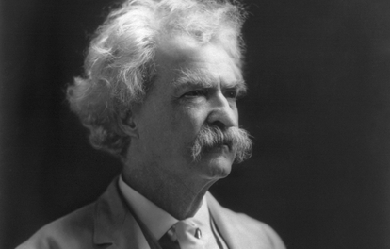

Samuel Langhorne Clemens (November 30, 1835– April 21, 1910), better known by his pen name Mark Twain, was an American writer, humorist, entrepreneur, publisher, and lecturer. Among his novels are The Adventures of Tom Sawyer (1876) and its sequel, the Adventures of Huckleberry Finn (1885), the latter often called “The Great American Novel”.
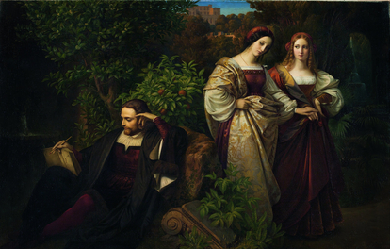
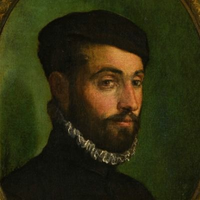
Torquato Tasso (Sorrento, 11 marzo 1544 – Roma, 25 aprile 1595) è stato un poeta, scrittore, drammaturgo e filosofo italiano. La sua opera più importante, conosciuta e tradotta in molte lingue è la Gerusalemme liberata (1581), in cui vengono cantati gli scontri tra cristiani e musulmani durante la prima crociata, culminanti nella presa cristiana di Gerusalemme.
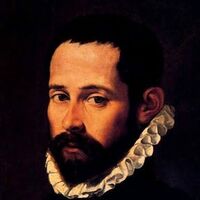
Jaime Torres Bodet (México, D.F.; 17 de abril de 1902 – Ibídem, 13 de mayo de 1974) fue un diplomático, escritor, ensayista y poeta mexicano, director general de la Unesco de 1948 a 1952. Su trabajo en la alfabetización ha sido reconocido, además de haber implementado la política de relaciones exteriores durante los inicios de la Guerra Fría. Se suicidó en 1974 Secretario de Educación Pública Secretario de Educación Pública. Reorganizó y dio nuevo impulso a la campaña alfabetizadora, creó el Instituto de Capacitación del Magisterio, organizó la Comisión Revisora de Planes y Programas, inició la Biblioteca Enciclopédica Popular, dirigió el valioso compendio México y la cultura (1946), construyó numerosas escuelas y, señaladamente, la Escuela Normal para Maestros, la Escuela Normal Superior y el Conservatorio Nacional en la Ciudad de México, y dio, en fin, coherencia doctrinaria a la educación mexicana. De 1958 a 1964 ocupó por segunda vez el cargo de Secretario de Educación Pública , periodo en que inició un Plan de Once Años para resolver el problema de la educación primaria en el país, en el cual trabajó estrechamente con la distinguida economista Ifigenia Martínez, fundó la Comisión Nacional de Libros de Texto Gratuitos y promovió la construcción del Museo Nacional de Antropología, del Museo de Arte Moderno y la organización y adaptación de los de Arte Virreinal y de Pintura Colonial. También dio auge al programa nacional de construcción de escuelas. Diplomático La siguiente etapa de su vida, a partir de 1929, estuvo dedicada al servicio exterior mexicano. Ese año aprobó el examen de oposición para ingresar a la carrera diplomática. Estuvo designado sucesivamente en Madrid, París, La Haya, Buenos Aires y Bruselas, donde lo sorprende, en 1940, la invasión nazi a Bélgica. Cabe destacar que entre 1937 y 1938 fue jefe del Departamento Diplomático de la Cancillería. A su regreso en México, de 1940 a 1943 es subsecretario de Relaciones Exteriores. Fue secretario de Relaciones Exteriores durante la gestión del presidente Miguel Alemán Valdés, de 1946 a 1948. En noviembre de 1948 fue designado Director General de la Unesco, cargo que ocupó hasta 1952. De 1954 a 1958 fue embajador de México en Francia. Escritor, ensayista y poeta Torres Bodet ingresó en la Academia Mexicana de la Lengua como nombrado miembro de número en 1952 y tomó posesión de la silla XXI el 12 de junio de 1953.2 Fue miembro de El Colegio Nacional, al cual ingresó el 6 de julio de 1953.3 En 1963, fue nombrado doctor honoris causa por la Universidad Autónoma de Sinaloa.4 En 1966 recibió el Premio Nacional de Ciencias y Artes en el área de Literatura y Lingüística de México.5 En 1971 recibió la Medalla Belisario Domínguez del Senado de la República y muchos otros honores de instituciones nacionales y extranjeras. Las novelas y relatos de Torres Bodet -siete volúmenes publicados entre 1927 y 1941- pertenecen a la época de interés por las nuevas direcciones de la prosa narrativa francesa y españolas. Desde la perspectiva actual, son obras sobre todo representativas de la búsqueda de una nueva sensibilidad y un nuevo estilo novelesco que se realizaba por aquellos años. Junto con varios intelectuales formó parte del grupo Los contemporáneos. En sus ensayos y estudios de crítica literaria —publicados inicialmente y en su mayoría en la revista que dio nombre al grupo, y reunidos luego algunos de ellos en un solo volumen (1928)— unía Torres Bodet un conocimiento pleno y siempre renovado de letras antiguas y modernas a un espíritu alerta y a un estilo dúctil y de transparente riqueza. Su crítica rectificó, en su tiempo, el valor de algunos falsos brillos y contribuyó singularmente a la formación literaria de las nuevas generaciones. Sus escritos relacionados con sus cargos públicos: discursos y mensajes entre los que se encuentran páginas admirables—como la oración a la madre, el discurso académico sobre la responsabilidad del escritor y el pronunciado en la inauguración del nuevo Museo Nacional de Antropología—, están dedicados a elucidar los problemas de la cultura, la educación y la concordia internacional de México y el mundo. Padeció cáncer durante dieciséis años. Víctima de dolor, se suicidó en la sala de su casa con un disparo en la sien el 13 de mayo de 1974. Se le rindió un homenaje de cuerpo presente en el Palacio de Bellas Artes. Fue sepultado en la Rotonda de las Personas Ilustres de la Ciudad de México. * Fervor (1918) * El corazón delirante (1922) * Canciones (1922) * La casa (1923) * Los días (1923) * Nuevas Canciones (1923) * Poemas (1924) * Biombo (1925) * Poesías (1926) * Contemporáneos (1928) * Destierro (1930) * Estrella de día (1933) * Cripta (1937) * Sonetos (1949) * Fronteras (1954) * Sin tregua (1957) * Tiempo de arena (1955) * Balzac (1959) * Tolstoi (1965) * Rubén Darío (1966), Premio Mazatlán de Literatura 1968 * Proust (1967) * Memorias (cinco volúmenes) (1961) Artículos publicados: * «Muerte de Proserpina», en Revista de Occidente, 1930. Referencias Wikipedia - http://es.wikipedia.org/wiki/Jaime_Torres_Bodet
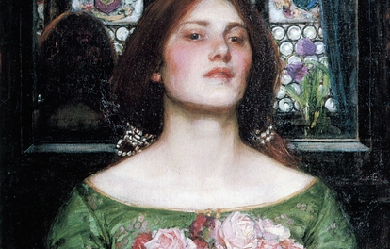
Lo que normalmente escribo en las llamadas fichas de autor: periodista e investigadora. Mis libros más recientes son "Adriana Loredo: Páginas muy bien condimentadas" (compilación de textos de la periodista Rosa Hilda Zell) y los ensayos "Arreglamundos: mujeres y periodismo en Cuba" y "Modernidad y periodismo en Julián del Casal". He devenido editora gracias al sitio web El Camagüey (www.elcamagüey.org). Lo que de mí no digo (y tal vez más importante) está en las historias que aquí podrás leer...

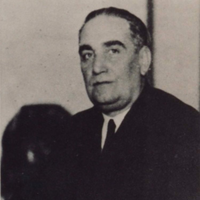
Luis Llorens Torres (14 de mayo de 1876, Juana Díaz - 16 de junio de 1944, Santurce) fue un poeta y periodista puertorriqueño. Trayectoria Realizó sus estudios primarios en Juana Díaz, aprendiendo letras, escritura y aritmética. A los 12 años comenzó a estudiar en Maricao su segunda enseñanza obteniendo el bachillerato en literatura y ciencia. Al finalizarlo su familia le ofreció la oportunidad de tener una educación superior en España. Reflejaría los sentimientos de esta separación en su poema "Valle de Collores". Se matriculó en la Facultad de Leyes de Barcelona, estudiando allí tres años. Posteriormente se recibió de abogado en la Universidad de Granada, doctorándose en Filosofía y Letras. En 1898 publicó su primer libro, "América", y al siguiente el primero de versos, "Al pie de la Alhambra", dedicado a la granadina Carmen Rivero, por entonces su novia, con quien contraería nupcias el 23 de enero de 1901, regresando posteriormente a Puerto Rico. Allí se había producido el cambio de soberanía. Ingresó al Partido Federal que defendía la independencia de la isla, lo que reflejó en su poema "El patito feo". Ocupa un escaño legislativo en la Cámara de Delegados para 1908 - 1910. Como colaboró en los periódicos publicados en Puerto Rico en asuntos históricos y políticos. Fundó la "Revista de las Antillas", considerada como una de las mejores en su género. Fue uno de los fundadores y redactores de Juan Bobo, semanario de crítica independiente en el que utilizó y promulgo su pseudónimo "Luis de Puerto Rico". Referencias Wikipedia-http://es.wikipedia.org/wiki/Luis_Llorens_Torres
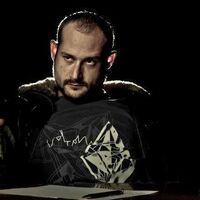
Willhelm Tanned Pseudónimo utilizado por Guillermo Moreno Losana nacido el 31 de Marzo de 1984 (28 años) en la ciudad de Sevilla (España). Es un escritor de poesía, micropoesía, relato corto y ensayo. Maestro de Educación Primaria por la Universidad Cardenal Spínola CEU. Nació en el seno de una familia de nivel medio. Hijo de un Ingeniero Químico y una Bancaria. A la edad de 18 años comenzó a colaborar con publicaciones online con el grupo literario español “Rosas Negras” lo que le permite dedicarse a una sección poética en un programa de radio de una emisora local. Asciende puestos en el programa en el que trabajaba (“Zona Joven”) hasta coproducirlo y diseñar un proyecto para lanzar el programa de radio a una emisora a nivel provincial. Se traslada a Valladolid donde toma contacto con un componente del grupo creador del fanzine español “el elefante rosa” con el que durante su corta estancia mantiene una relación cercana y trata sus inquietudes artísticas. En 2004 regresa a Sevilla, donde el programa por el que había trabajado es aceptado en la emisora Punto Radio (Sevilla) dirigida por Luis del Olmo llevando a cabo la sección poética “Cajón de sastre” del mismo programa “Zona Joven”. Al mismo tiempo entra a formar parte del conjunto poético #poesia-irc donde colabora y expone sus creaciones en varios concursos y recitales. Poco a poco dirige su vida a la producción artística entrando a formar parte de la productora “Sala de Máquinas Producciones”, años durante los cuales aparca su vida poética para dedicarse a la realización de espectáculos y conciertos. Tras esta etapa decide dejar todo y prepararse para su labor como Maestro de Primaria. Trabajo que le permitiría tener más tiempo para su creación literaria y satisfacción personal. Es entonces cuando empieza a expandir su obra entrando poco a poco en el mundo de la poesía joven española de la actualidad. Ha colaborado además de en programas de radio, en fanzines y portales especializados de España y Sudamérica. Obras poéticas: (2010) - “Poesía callejera, poesía efímera” .- Exposición itinerante por las calles de Sevilla. Conjunto de micropoesía inspirada en los haikus. - “Es poesía, Es corazón”.- Performance poético para los alumnos de Artes Visuales de la Universidad Cardenal Spínola CEU Obras de ensayo y poesía publicados en diferentes medios: (2010) - Abandono - Algo Xtrño - Lágrimas ambulantes ,Viajes sin retorno - La crucifixión de Dalí fue Salvador - El Buscador - Traje de Chaqueta y Vermouth - Semblanza de una heroína - He soñado Improvisar - Reflexiones 1.045c Micropoesía: (“Poesía Callejera, Poesía Efímera, 2010” - Serie de 19 micropoemas) - Efímeros - Piel a secas - Un segundo, no más - Preludio - Harakiri - Game Over - Deja de ser vicio - Acantilado - Viaje - Sensual - Nuevo relato - Cuencas vacías - Infante - Gratuito - Si un instante antes… - Fotografías - Mimetismo - Madre Serie de poemas a Gaia (6 micropoemas) Páginas web que hacen referencia al autor: www.willhelmtanned.blogspot.com http://metapoesia.es.tl/Willhelm-Tanned.htm http://rocner.blogspot.com.es/2012/03/iluminacion-i-fases-fotopoesia.html http://www.poesiaspoemas.com/willhelm-tanned http://www.mundopoesia.com/foros/tu-obra-maestra-en-verso/370478-lagrimas-ambulantes-viajes-sin-retorno.html
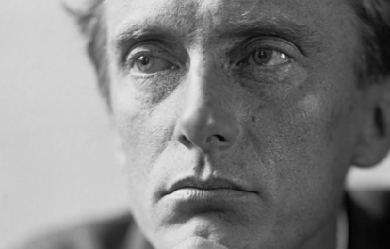
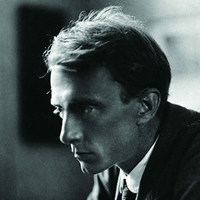
Philip Edward Thomas (3 March 1878– 9 April 1917) was a British poet, essayist, and novelist. He is commonly considered a war poet, although few of his poems deal directly with his war experiences, and his career in poetry only came after he had already been a successful writer and literary critic. In 1915, he enlisted in the British Army to fight in the First World War and was killed in action during the Battle of Arras in 1917, soon after he arrived in France. Life and career Early life Thomas was born in Lambeth, London. He was educated at Battersea Grammar School, St Paul’s School in London and Lincoln College, Oxford. His family were mostly Welsh. In June 1899 he married Helen Berenice Noble (1878-1967), in Fulham, while still an undergraduate, and determined to live his life by the pen. He then worked as a book reviewer, reviewing up to 15 books every week. He was already a seasoned writer by the outbreak of war, having published widely as a literary critic and biographer as well writing on the countryside. He also wrote a novel, The Happy-Go-Lucky Morgans (1913), a “book of delightful disorder”. Thomas worked as literary critic for the Daily Chronicle in London and became a close friend of Welsh tramp poet W. H. Davies, whose career he almost single-handedly developed. From 1905, Thomas lived with his wife Helen and their family at Elses Farm near Sevenoaks, Kent. He rented to Davies a tiny cottage nearby, and nurtured his writing as best he could. On one occasion, Thomas even had to arrange for the manufacture, by a local wheelwright, of a makeshift wooden leg for Davies. Even though Thomas thought that poetry was the highest form of literature and regularly reviewed it, he only became a poet himself at the end of 1914 when living at Steep, East Hampshire, and initially published his poetry under the name Edward Eastaway. Frost in particular encouraged Thomas (then more famous as a critic) to write poetry, and their friendship was so close that the two planned to reside side by side in the United States. By August 1914, the village of Dymock in Gloucestershire had become the residence of a number of literary figures, including Lascelles Abercrombie, Wilfrid Gibson and American poet Robert Frost. Edward Thomas was a visitor at this time. Thomas immortalised the (now-abandoned) railway station at Adlestrop in a poem of that name after his train made a stop at the Cotswolds station on 24 June 1914, shortly before the outbreak of the First World War. War service Thomas enlisted in the Artists Rifles in July 1915, despite being a mature married man who could have avoided enlisting. He was unintentionally influenced in this decision by his friend Frost, who had returned to the U.S. but sent Thomas an advance copy of “The Road Not Taken”. The poem was intended by Frost as a gentle mocking of indecision, particularly the indecision that Thomas had shown on their many walks together; however, most audiences took the poem more seriously than Frost intended, and Thomas similarly took it seriously and personally, and it provided the last straw in Thomas’ decision to enlist. Thomas was promoted corporal, and in November 1916 was commissioned into the Royal Garrison Artillery as a second lieutenant. He was killed in action soon after he arrived in France at Arras on Easter Monday, 9 April 1917. To spare the feelings of his widow Helen, she was told the fiction of a “bloodless death” i.e. that Thomas was killed by the concussive blast wave of one of the last shells fired as he stood to light his pipe and that there was no mark on his body. However, a letter from his commanding officer Franklin Lushington written in 1936 (and discovered many years later in an American archive) states that in reality the cause of Thomas’ death was due to being “shot clean through the chest”. W. H. Davies was devastated by the death and his commemorative poem “Killed In Action (Edward Thomas)” was included in Davies’s 1918 collection “Raptures”. Thomas is buried in the Commonwealth War Graves Cemetery at Agny in France (Row C, Grave 43). Personal life Thomas was survived by his wife, Helen, their son Merfyn and their two daughters Bronwen and Myfanwy. After the war, Thomas’s widow, Helen, wrote about her courtship and early married life with Edward in the autobiography As it Was (1926); later she added a second volume, World Without End (1931). Myfanwy later said that the books had been written by her mother as a form of therapy to help lift herself from the deep depression into which she had fallen following Thomas’s death. Helen’s short memoir My Memory of W. H. Davies was published in 1973, after her own death. In 1988, Helen’s writings were gathered into a book published under the title Under Storm’s Wing, which included As It Was and World Without End as well as a selection of other short works by Helen and her daughter Myfanwy and six letters sent by Robert Frost to her husband. Commemorations Thomas is commemorated in Poets’ Corner, Westminster Abbey, London, by memorial windows in the churches at Steep and at Eastbury in Berkshire and with a blue plaque at 14 Lansdowne Gardens in Stockwell, south London, where he was born. There is also a plaque dedicated to him at 113 Cowley Road, Oxford, where he lodged before entering Lincoln College. East Hampshire District Council have created a “literary walk” at Shoulder of Mutton Hill in Steep dedicated to Thomas, which includes a memorial stone erected in 1935. The inscription includes the final line from one of his essays: “And I rose up and knew I was tired and I continued my journey.” As “Philip Edward Thomas poet-soldier” he is commemorated, alongside "Reginald Townsend Thomas actor-soldier died 1918", who is buried at the spot, and other family members, at the North East Surrey (Old Battersea) Cemetery. He is the subject of the biographical play The Dark Earth and the Light Sky by Nick Dear, which premiered at the Almeida Theatre, London in November 2012, with Pip Carter as Thomas and Hattie Morahan as his wife Helen. In February 2013 his poem “Words” was chosen as the poem of the week by Carol Rumens in The Guardian Poetry Thomas’s poems are noted for their attention to the English countryside and a certain colloquial style. The short poem In Memoriam exemplifies how his poetry blends the themes of war and the countryside. On 11 November 1985, Thomas was among 16 Great War poets commemorated on a slate stone unveiled in Westminster Abbey’s Poet’s Corner. The inscription, written by fellow poet Wilfred Owen, reads: “My subject is War, and the pity of War. The Poetry is in the pity.” Thomas was described by British Poet Laureate Ted Hughes as “the father of us all.” At least nineteen of his poems were set to music by the Gloucester composer Ivor Gurney. Selected works Poetry collections * Six Poems (under pseudonym Edward Eastaway) Pear Tree Press, 1916. * Poems, Holt, 1917, which included “The Sign-Post” * Last Poems, Selwyn & Blount, 1918. * Collected Poems, Selwyn & Blount, 1920. * Two Poems, Ingpen & Grant, 1927. * The Poems of Edward Thomas, ed. R. George Thomas, Oxford University Press, 1978. * Edward Thomas: A Mirror of England, ed. Elaine Wilson, Paul & Co., 1985. * Edward Thomas: Selected Poems, ed. Ian Hamilton, Bloomsbury, 1995. * The Poems of Edward Thomas, ed. Peter Sacks, Handsel Books, 2003. * The Annotated Collected Poems, ed. Edna Longley, Bloodaxe Books, 2008. Prose fiction * The Happy-Go-Lucky Morgans (novel), Duckworth, 1913. Prose * In Pursuit of Spring (travel) Thomas Nelson and Sons, April 1914 Essays and collections * Horae Solitariae, Dutton, 1902. * Oxford, A & C Black, 1903. * Beautiful Wales, Black, 1905. * The Heart of England, Dutton, 1906. * The South Country, Dutton, 1906 (reissued by Tuttle, 1993). * Rest and Unrest, Dutton, 1910. * Light and Twilight, Duckworth, 1911. * The Icknield Way, Constable, 1913. * The Last Sheaf, Jonathan Cape, 1928. References to Thomas by other writers * In 1918 W. H. Davies published his poem Killed In Action (Edward Thomas) to mark the personal loss of his close friend and mentor. * Many poems about Thomas by other poets can be found in the books Elected Friends: Poems For and About Edward Thomas, (1997, Enitharmon Press) edited by Anne Harvey, and Branch-Lines: Edward Thomas and Contemporary Poetry, (2007, Enitharmon Press) edited by Guy Cuthbertson and Lucy Newlyn. * Norman Douglas considered Thomas handicapped in life through lacking “a little touch of bestiality, a little je-m’en-fous-t-ism. He was too scrupulous”. * In his 1980 autobiography, Ways of Escape, Graham Greene references Thomas’s poem “The Other” (about a man who seems to be following his own double from hotel to hotel) in describing his own experience of being bedeviled by an imposter. * Edward Thomas’s Collected Poems was one of Andrew Motion’s ten picks for the poetry section of the “Guardian Essential Library” in October 2002. * In his 2002 novel Youth, J.M. Coetzee has his main character, intrigued by the survival of pre-modernist forms in British poetry, ask himself: “What happened to the ambitions of poets here in Britain? Have they not digested the news that Edward Thomas and his world are gone for ever?” In contrast, Irish critic Edna Longley writes that Thomas’s Lob, a 150-line poem, “strangely preempts The Waste Land through verses like: ”This is tall Tom that bore / The logs in, and with Shakespeare in the hall / Once talked". * In his 1995 novel, Borrowed Time, the author Robert Goddard bases the home of the main character at Greenhayes in the village of Steep, where Thomas lived from 1913. Goddard weaves some of the feeling from Thomas’s poems into the mood of the story and also uses some quotes from Thomas’s works. * Will Self’s 2006 novel, The Book of Dave, has a quote from The South Country as the book’s epigraph: “I like to think how easily Nature will absorb London as she absorbed the mastodon, setting her spiders to spin the winding sheet and her worms to fill in the graves, and her grass to cover it pitifully up, adding flowers—as an unknown hand added them to the grave of Nero.” * The children’s author Linda Newbery has published a novel, “Lob” (David Fickling Books, 2010, illustrated by Pam Smy) inspired by the Edward Thomas’ poem of the same name and containing oblique references to other work by him. * Woolly Wolstenholme, formerly of UK rock band Barclay James Harvest, has used a humorous variation of Thomas’ poem Adlestrop on the first song of his 2004 live album, Fiddling Meanly, where he imagines himself in a retirement home and remembers “the name” of the location where the album was recorded. The poem was read at Wolstenholme’s funeral on 19 January 2011. * Stuart Maconie in his book Adventures On The High Teas mentions Thomas and his poem “Adlestrop”. Maconie visits the now abandoned and overgrown station which was closed by Beeching in 1966. * Robert MacFarlane, in his 2012 book The Old Ways, critiques Thomas and his poetry in the context of his own explorations of paths and walking as an analogue of human consciousness. * In his 2012 novel Sweet Tooth, Ian McEwan has a character invoke Thomas’s poem “Adlestrop,” as a “sweet, old-fashioned thing” and an example of “the sense of pure existence, of being suspended in space and time, a time before a cataclysmic war.” * The last years of Thomas’s life are explored in A Conscious Englishman, a 2013 biographical novel by Margaret Keeping, published by StreetBooks. * Pat Barker’s 1995 WW1 novel, The Ghost Road, Booker Prize winner and the third novel of her Regeneration Trilogy, has as its opening epigraph 4 lines from 'Roads’. * 'Now all roads lead to France/ And heavy is the tread/ Of the living; but the dead/ Returning lightly dance:’ References Wikipedia—https://en.wikipedia.org/wiki/Edward_Thomas_(poet)
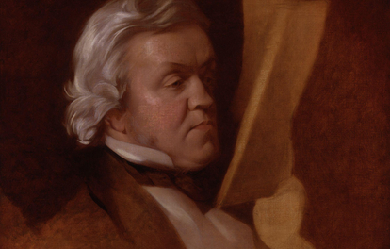
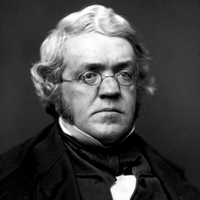
William Makepeace Thackeray (18 July 1811– 24 December 1863) was an English novelist of the 19th century. He is famous for his satirical works, particularly Vanity Fair, a panoramic portrait of English society. He began as a satirist and parodist, writing works that displayed a sneaking fondness for roguish upstarts such as Becky Sharp in Vanity Fair, and the title characters of The Luck of Barry Lyndon and Catherine. In his earliest works, written under such pseudonyms as Charles James Yellowplush, Michael Angelo Titmarsh and George Savage Fitz-Boodle, he tended towards savagery in his attacks on high society, military prowess, the institution of marriage and hypocrisy.

My name is Kailey Nicolaou (Titanium-Heart), my friends call me Kailz or Elly. My work is about my life struggles that have occurred and about faith, hope, depression etc. I have been writing poems, novels and songs since I was young to express my feelings, darkest and lightest thoughts. A lot of my poems are about my daughter Summer Rose Nicolaou who died on 18th December 2008, this was one of my darkest times that I have ever had. I do not speak to many people about my issues, so poetry is my release. I truly hope you enjoy my poetry and follow me for more of my poems, if you do follow me, I will defiantly take the time to look at your work and follow your page as well. Thank you.

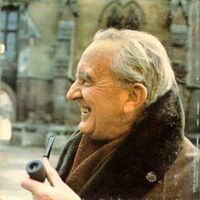
John Ronald Reuel Tolkien, 3 January 1892 – 2 September 1973) was an English writer, poet, philologist, and university professor who is best known as the author of the classic high-fantasy works The Hobbit, The Lord of the Rings, and The Silmarillion. He served as the Rawlinson and Bosworth Professor of Anglo-Saxon and Fellow of Pembroke College, Oxford, from 1925 to 1945 and Merton Professor of English Language and Literature and Fellow of Merton College, Oxford from 1945 to 1959.[1] He was at one time a close friend of C. S. Lewis—they were both members of the informal literary discussion group known as the Inklings. Tolkien was appointed a Commander of the Order of the British Empire by Queen Elizabeth II on 28 March 1972. After Tolkien's death, his son Christopher published a series of works based on his father's extensive notes and unpublished manuscripts, including The Silmarillion. These, together with The Hobbit and The Lord of the Rings form a connected body of tales, poems, fictional histories, invented languages, and literary essays about a fantasy world called Arda, and Middle-earth within it. Between 1951 and 1955, Tolkien applied the term legendarium to the larger part of these writings. While many other authors had published works of fantasy before Tolkien,[3] the great success of The Hobbit and The Lord of the Rings led directly to a popular resurgence of the genre. This has caused Tolkien to be popularly identified as the "father" of modern fantasy literature—or, more precisely, of high fantasy. In 2008, The Times ranked him sixth on a list of "The 50 greatest British writers since 1945". Forbes ranked him the 5th top-earning "dead celebrity" in 2009. Family origins Tolkien's paternal ancestors were middle-class craftsmen who made and sold clocks, watches and pianos in London and Birmingham. The Tolkien family had emigrated from Germany in the 18th century but had become "quickly intensely English". Stories told by his aunt, Grace Tolkien, claimed a relation with the House of Hohenzollern. "More prosaic" members of the family said that the Tolkiens had arrived in England in 1756, as refugees from Frederick the Great's invasion of the Electorate of Saxony during the Seven Years' War. Tolkien derived his surname from the German word tollkühn, meaning "foolhardy". Several families with the surname Tolkien or other spelling variants live in northwestern Germany, mainly in Lower Saxony and Hamburg. A German writer has suggested that the name is more likely to derive from the village Tolkynen, near Rastenburg, East Prussia (now in north-eastern Poland), although that village is far from Lower Saxony; its name is derived from the now-extinct Old Prussian language. Childhood John Ronald Reuel Tolkien was born on 3 January 1892 in Bloemfontein in the Orange Free State (now Free State Province in South Africa) to Arthur Reuel Tolkien (1857–1896), an English bank manager, and his wife Mabel, née Suffield (1870–1904). The couple had left England when Arthur was promoted to head the Bloemfontein office of the British bank for which he worked. Tolkien had one sibling, his younger brother, Hilary Arthur Reuel, who was born on 17 February 1894. As a child, he was bitten by a large baboon spider in the garden, an event some think later echoed in his stories, although Tolkien admitted no actual memory of the event and no special hatred of spiders as an adult. In another incident, a young family servant, who thought Tolkien a beautiful child, took the baby to his kraal to show him off, returning him the next morning. When he was three, he went to England with his mother and brother on what was intended to be a lengthy family visit. His father, however, died in South Africa of rheumatic fever before he could join them. This left the family without an income, so Tolkien's mother took him to live with her parents in Kings Heath, Birmingham. Soon after, in 1896, they moved to Sarehole (now in Hall Green), then a Worcestershire village, later annexed to Birmingham. He enjoyed exploring Sarehole Mill and Moseley Bog and the Clent, Lickey and Malvern Hills, which would later inspire scenes in his books, along with nearby towns and villages such as Bromsgrove, Alcester, and Alvechurch and places such as his aunt Jane's farm of Bag End, the name of which he used in his fiction. Mabel Tolkien taught her two children at home. Ronald, as he was known in the family, was a keen pupil. She taught him a great deal of botany and awakened in him the enjoyment of the look and feel of plants. Young Tolkien liked to draw landscapes and trees, but his favourite lessons were those concerning languages, and his mother taught him the rudiments of Latin very early. He could read by the age of four and could write fluently soon afterwards. His mother allowed him to read many books. He disliked Treasure Island and The Pied Piper and thought Alice's Adventures in Wonderland by Lewis Carroll was "amusing but disturbing". He liked stories about "Red Indians" and the fantasy works by George MacDonald. In addition, the "Fairy Books" of Andrew Lang were particularly important to him and their influence is apparent in some of his later writings. Mabel Tolkien was received into the Roman Catholic Church in 1900 despite vehement protests by her Baptist family, which stopped all financial assistance to her. In 1904, when J.R.R. Tolkien was 12, his mother died of acute diabetes at Fern Cottage in Rednal, which she was renting. She was then about 34 years of age, about as old as a person with diabetes mellitus type 1 could live without treatment — insulin would not be discovered until two decades later. Nine years after her death, Tolkien wrote, "My own dear mother was a martyr indeed, and it is not to everybody that God grants so easy a way to his great gifts as he did to Hilary and myself, giving us a mother who killed herself with labour and trouble to ensure us keeping the faith." Prior to her death, Mabel Tolkien had assigned the guardianship of her sons to her close friend, Fr. Francis Xavier Morgan of the Birmingham Oratory, who was assigned to bring them up as good Catholics. In a 1965 letter to his son Michael, Tolkien recalled the influence of the man whom he always called "Father Francis" : "He was an upper-class Welsh-Spaniard Tory, and seemed to some just a pottering old gossip. He was—and he was not. I first learned charity and forgiveness from him; and in the light of it pierced even the 'liberal' darkness out of which I came, knowing more [i.e. Tolkien having grown up knowing more] about 'Bloody Mary' than the Mother of Jesus—who was never mentioned except as an object of wicked worship by the Romanists." After his mother's death, Tolkien grew up in the Edgbaston area of Birmingham and attended King Edward's School, Birmingham, and later St. Philip's School. In 1903, he won a Foundation Scholarship and returned to King Edward's. While a pupil there, Tolkien was one of the cadets from the school's Officers Training Corps who helped "line the route" for the 1910 coronation parade of King George V. Like the other cadets from King Edward's, Tolkien was posted just outside the gates of Buckingham Palace. In Edgbaston, Tolkien lived there in the shadow of Perrott's Folly and the Victorian tower of Edgbaston Waterworks, which may have influenced the images of the dark towers within his works.[31][32] Another strong influence was the romantic medievalist paintings of Edward Burne-Jones and the Pre-Raphaelite Brotherhood; the Birmingham Museum and Art Gallery had a large collection of works on public display. Youth While in his early teens, Tolkien had his first encounter with a constructed language, Animalic, an invention of his cousins, Mary and Marjorie Incledon. At that time, he was studying Latin and Anglo-Saxon. Interest in the language soon died away, but Mary and others, including Tolkien himself, invented a new and more complex language called Nevbosh. The next constructed language he came to work with, Naffarin, would be his own creation. In 1911, while they were at King Edward's School, Birmingham, Tolkien and three friends, Rob Gilson, Geoffrey Bache Smith and Christopher Wiseman, formed a semi-secret society they called the T.C.B.S. The initials stood for Tea Club and Barrovian Society, alluding to their fondness for drinking tea in Barrow's Stores near the school and, secretly, in the school library. After leaving school, the members stayed in touch and, in December 1914, they held a "council" in London at Wiseman's home. For Tolkien, the result of this meeting was a strong dedication to writing poetry. In 1911, Tolkien went on a summer holiday in Switzerland, a trip that he recollects vividly in a 1968 letter, noting that Bilbo's journey across the Misty Mountains ("including the glissade down the slithering stones into the pine woods") is directly based on his adventures as their party of 12 hiked from Interlaken to Lauterbrunnen and on to camp in the moraines beyond Mürren. Fifty-seven years later, Tolkien remembered his regret at leaving the view of the eternal snows of Jungfrau and Silberhorn ("the Silvertine (Celebdil) of my dreams"). They went across the Kleine Scheidegg to Grindelwald and on across the Grosse Scheidegg to Meiringen. They continued across the Grimsel Pass, through the upper Valais to Brig and on to the Aletsch glacier and Zermatt. In October of the same year, Tolkien began studying at Exeter College, Oxford. He initially studied Classics but changed his course in 1913 to English Language and Literature, graduating in 1915 with first-class honours in his final examinations. Family The Tolkiens had four children: John Francis Reuel Tolkien (17 November 1917 – 22 January 2003), Michael Hilary Reuel Tolkien (22 October 1920 – 27 February 1984), Christopher John Reuel Tolkien (born 21 November 1924) and Priscilla Mary Anne Reuel Tolkien (born 18 June 1929). Tolkien was very devoted to his children and sent them illustrated letters from Father Christmas when they were young. Each year more characters were added, such as the North Polar Bear (Father Christmas's helper), the Snow Man (his gardener), Ilbereth the elf (his secretary), and various other, minor characters. The major characters would relate tales of Father Christmas's battles against goblins who rode on bats and the various pranks committed by the North Polar Bear. References Wikipedia—http://en.wikipedia.org/wiki/J._R._R._Tolkien
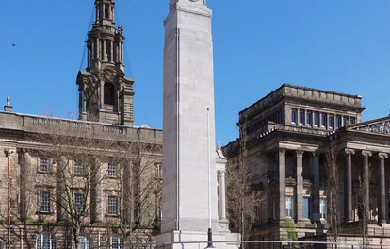
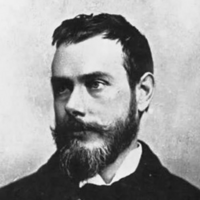
Francis Thompson (16 December 1859– 13 November 1907) was an English poet and ascetic. After attending college, he moved to London to become a writer, but could only find menial work and became addicted to opium, and was a street vagrant for years. A married couple read his poetry and rescued him, publishing his first book Poems in 1893. Thompson lived as an unbalanced invalid in Wales and at Storrington, but wrote three books of poetry, with other works and essays, before dying of tuberculosis in 1907. Life and work Thompson was born in Winckley Street, Preston, Lancashire. His father, Charles, was a doctor who had converted to Roman Catholicism, following his brother Edward Healy Thompson, a friend of Cardinal Manning. Thompson was educated at Ushaw College, near Durham, and then studied medicine at Owens College, now the University of Manchester. He took no real interest in his studies and never practised as a doctor, moving instead to London in 1885, to try to become a writer. Here he was reduced to selling matches and newspapers for a living. During this time, he became addicted to opium, which he first had taken as medicine for ill health. Thompson started living on the streets of Charing Cross and sleeping by the River Thames, with the homeless and other addicts. He was turned down by Oxford University, not because he was unqualified, but because of his drug addiction. Thompson attempted suicide in his nadir of despair, but was saved from completing the action through a vision which he believed to be that of a youthful poet Thomas Chatterton, who had committed suicide almost a century earlier. A prostitute– whose identity Thompson never revealed– befriended him, gave him lodgings and shared her income with him. Thompson was later to describe her in his poetry as his saviour. She soon disappeared, however, never to return, in his estimation because she feared she would taint his growing reputation. In 1888, he had been 'discovered’ after sending his poetry to the magazine Merrie England. He had been sought out by the magazine’s editors, Wilfrid and Alice Meynell. Recognizing the value of his work, the couple gave him a home and arranged for publication of his first book Poems in 1893. The book attracted the attention of sympathetic critics in the St James’s Gazette and other newspapers, and Coventry Patmore wrote a eulogistic notice in the Fortnightly Review of January 1894. Concerned about his opium addiction, which was at its height following his years on the streets, the Meynells sent Thompson to Our Lady of England Priory, Storrington. Thompson subsequently lived as an invalid at Pantasaph, Flintshire in Wales and at Storrington. A lifetime of extreme poverty, ill-health, and an addiction to opium took a heavy toll on Thompson, even though he found success in his last years. He would eventually die from tuberculosis at the age of 47, in the Hospital of St John and St Elizabeth and he is buried in St. Mary’s Roman Catholic Cemetery in Kensal Green. His tomb bears the last line from a poem he wrote for his godson - Look for me in the nurseries of Heaven. Style and influence His most famous poem, The Hound of Heaven, describes the pursuit of the human soul by God. This poem is the source of the phrase “with all deliberate speed,” used by the Supreme Court in Brown II, the remedy phase of the famous decision on school desegregation. A phrase in The Kingdom of God is the source of the title of Han Suyin’s novel Love Is a Many-Splendored Thing. In addition, Thompson wrote the most famous cricket poem, the nostalgic At Lord’s. He also wrote Sister Songs (1895), New Poems (1897), and a posthumously published essay, Shelley (1909). He wrote a treatise On Health and Holiness, dealing with the ascetic life, which was published in 1905. G. K. Chesterton said shortly after his death that “with Francis Thompson we lost the greatest poetic energy since Browning.” Among Thompson’s devotees was the young J. R. R. Tolkien, who purchased a volume of Thompson’s works in 1913-1914, and later said that it was an important influence on his own writing. The American novelist Madeleine L’Engle used a line from the poem The Mistress of Vision as the title of her last Vicki Austin novel, Troubling a Star. In 2011, Thompson’s life was the subject of the stage play and film script HOUND (Visions in the Life of the Poet Francis Thompson) by writer/director Chris Ward, which has been performed in various venues around London. Jack the Ripper suspect In his 1999 book Paradox, Australian author and educator Richard Patterson named Thompson as a possible identity of serial killer Jack the Ripper. On 6 November 2015, Patterson strengthened his claim. Home Thompson’s birthplace, in Winckley Street, Preston is marked by a memorial plaque. The inscription reads: "Francis Thompson poet was born in this house Dec 16 1859. Ever and anon a trumpet sounds, From the hid battlements of eternity." The home in Ashton-under-Lyne where Thompson lived from 1864 to 1885 was also marked with a blue plaque. In 2014, however, the building collapsed. References Wikipedia—https://en.wikipedia.org/wiki/Francis_Thompson
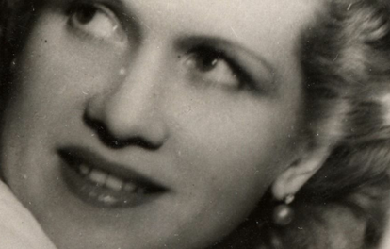
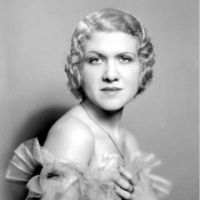
Josefina de la Torre Millares (Las Palmas de Gran Canaria, 1907−Madrid, 12 de julio de 2002) fue una poetisa, novelista, cantante lírica y actriz canaria vinculada a la Generación del 27 y la corriente vanguardista hispánica de la primera mitad del siglo XX. Está en la nómina de Las Sinsombrero. Comenzó a escribir poesía a los nueve años, en 1915, cuando compuso unos versos dedicados al poeta modernista canario Alonso Quesada, aunque un año antes ya había escrito un poema de homenaje a Benito Pérez Galdós, y a los 15 comenzó a publicar en revistas.1 La influencia de su hermano Claudio, novelista y dramaturgo en auge en aquel momento, y Premio Nacional de Literatura en 1926, fue muy importante para su iniciación en el campo de la literatura y también de la representación teatral. Así en 1928, creó en su casa de Las Canteras el llamado Teatro Mínimo que dirigía su hermano Claudio.
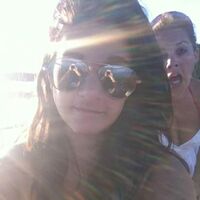
I have never truly fit in with my peers. In early grade school, I had a good amount of friends my age, but by the third grade I was reading at least five grade levels above them, and had discovered my love of the written word. I immersed myself in literature as my peers immersed themselves in pop culture. My friends grew closer to each other, as I delved into my own world. A world of fiction and fantasy. As the girls fell in love with the boys, I fell in love with my favorite characters. My vocabulary expanded to the point where large, polysyllabic words were part of my normal speech, and I had to repeat and tailor my sentences to speak to my peers. This trouble communicating pushed me further from my friends and closer to my books. I chose to live my life between the pages. It was only a matter of time, I suppose, before I discovered what reading had given me. I had developed a command over the written word which I could use to create my own stories. I could share my own thoughts efficiently and creatively, and I could make it sound beautiful with the ways I could craft the syllables to my whims. Words became better friends to me than humans. Over time I have discovered myself as a writer and poet. However, I have not lost my interpersonal relationships. I have been in love, I have been hurt, I have learned to interact with my peers, and I have had the experience one receives in high school. I have taken my experiences, both real and read about, and told them with words. I have learned from life and literature, and developed a depth of maturity that separates me from my closest friends. They come to me for advice because I have an understanding of issues that has proved helpful to them, in the rare situation that they actually enact it. However, when it comes down to it, the superficiality of my fellow high school girls pushes me away. I have tried and failed to open up to my peers and have effectively, though rather unfortunately, created a vast distance between them and I. Now here I am, unable to connect with my peers on a satisfactory level, and I feel a deep loneliness despite however many people surround me at any time. I have, to my dismay, dug my own hole, -- the nature of this hole I am still unsure of, could it be my own grave, I don't know -- but I have opened up a bottle of hurt and placed myself in a crippling depression. My own ignorance has been my ruin. I put myself on a plain above my level, and when I finally came down, I came crashing down only to find that I had pushed myself too far away. I have friends whose sincerity I am irrevocably unconvinced, and I have my own thoughts. Thoughts full of pain and resentment. I used to, desperately, blame others for it, too. I blamed my peers for not being on my level, and even my doctors for treating the ADD which could have kept me back from becoming too knowledgable. However, now I see that I am alone because I put myself in solitary. It is as regrettable as the physical scars which I have made on my wrist and gut: the emotional scar I have carved in my own heart. PS: I have a bit of an affinity to Willow Trees...


